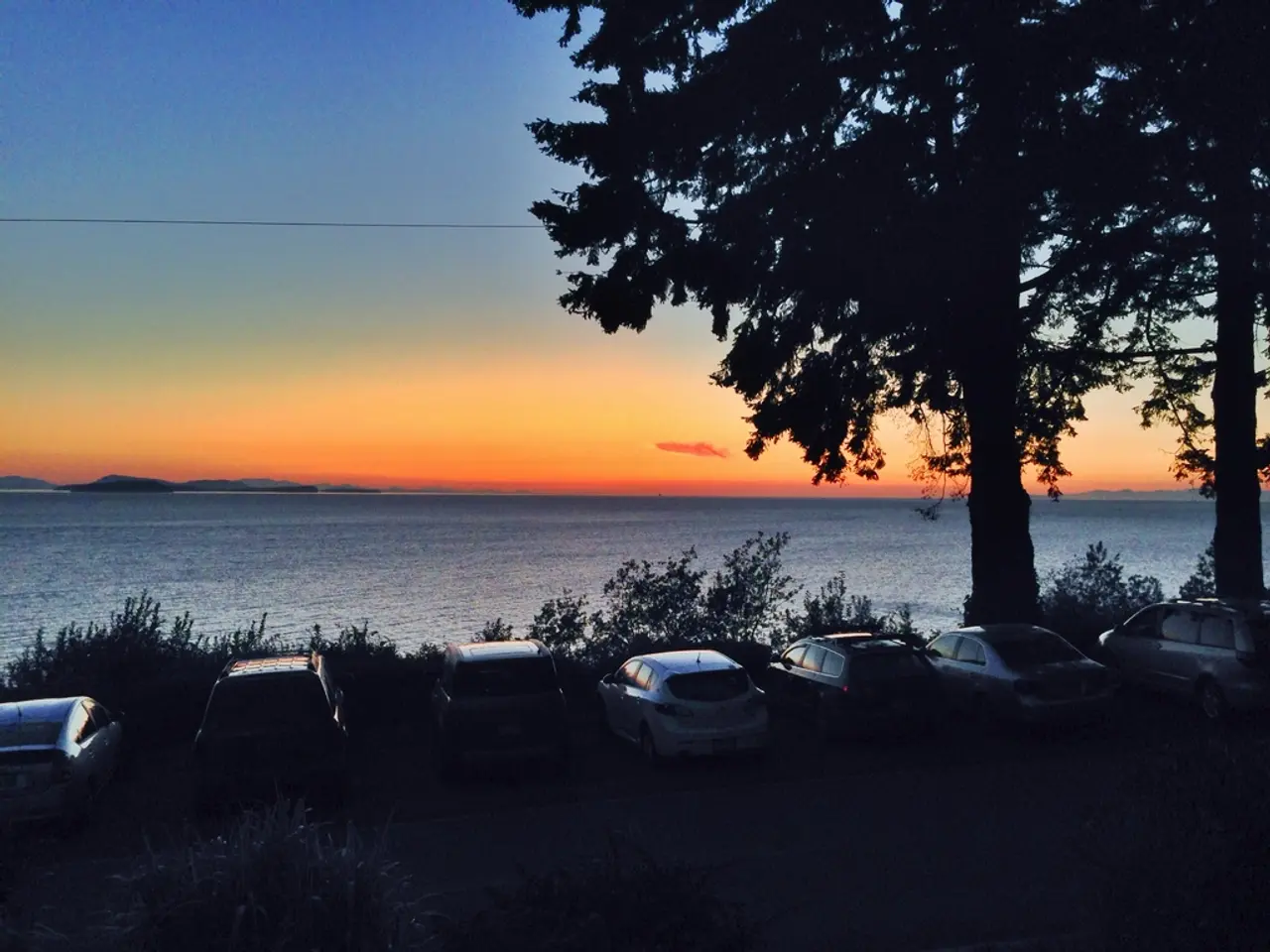Heat Work Environments Abroad: An Examination
In Europe, as summer temperatures soar, several countries have implemented measures to safeguard workers from heat-related illnesses. Here's a look at some of the key heat protection regulations in various European nations.
Slovenia
Indoor workplaces in Slovenia should not exceed a temperature of 28 degrees, according to regulations. However, specific laws protecting outdoor work during hot weather are yet to be established. The Confederation of Free Trade Unions ZSSS has proposed suggestions for such protection, but they remain unenforced.
Hungary
Hungary has a detailed regulation for heat protection at work. For outdoor work, measures are enforced when temperatures exceed 27 degrees, and for indoor work, when they surpass 31 degrees.
France
In France, public employers are required to provide at least three liters of water per employee if there's no running water on-site. There are no specific temperature thresholds mandating work suspension.
Spain
In Spain, these restrictions apply when the state weather service AEMET issues an orange or red heat warning. Outdoor work must be restricted or stopped entirely during extreme heat, with fines of up to almost €1 million for violations.
Italy
Italy has implemented a heat protection Protocol aimed at safeguarding workers during heatwaves. While it is not legally binding at present, the Protocol emphasizes proactive workplace safety measures. Key measures include risk assessments, preventative measures, national or company-level agreements, support from the Ministry of Labour, and social safety nets. However, the Protocol lacks mandatory enforcement, potentially limiting its immediate impact.
Greece
Public air-conditioned buildings in Greek cities are open during heatwaves for people without air conditioning at home. Schools may occasionally close due to extreme heat, but there are currently no government-driven measures in place to cool cities. The Greek Ministry of Labor prohibits outdoor work between 12:00 and 17:00 in affected regions, and fines non-compliance up to €2,000 per affected employee.
Romania
In Romania, employers must adjust the work schedule during extreme heat, provide breaks, drinking water, shaded retreat areas, and ventilation, or else work must stop between 11:00 and 17:00. Employees can refuse work if it's too hot (threshold of 37 degrees in the shade for more than two consecutive days).
Turkey
In Turkey, those working on construction sites or in agriculture are advised to avoid the midday sun and drink plenty of water during heatwaves. There are currently no government-driven measures in place to cool cities.
Greece (Acropolis) and Serbia
The Acropolis in Greece closes during midday hours when temperatures exceed 40°C in the shade. In Serbia, employers who violate heat protection rules can face fines of up to 17,000 euros, and employees can anonymously report violations to the labor inspectorate.
Croatia
In Croatia, there are no laws regarding heat protection, and trade unions criticize this.
France (Strengthening Measures)
France is strengthening measures to protect against heatwaves, including tightening regulations for precautions that public employers must take during heatwaves.
Italy (Traditional Siesta)
The traditional siesta in Italy dates back to ancient Rome, but the Italian government has not issued uniform protection measures for workers. Some regions have independently adopted anti-heat ordinances.
This comparative analysis reveals a mix of legally binding regulations and voluntary compliance frameworks across Europe. While some countries have specific temperature thresholds for work suspension, others rely on advice and guidelines. The effectiveness of these measures varies, with some countries like Spain tightening regulations in response to fatal heat-related incidents. The need for a comprehensive, legally binding heat protection framework across Europe remains a pressing concern.
Read also:
- HIV-AIDS and Kaposi Sarcoma: Link, Occurrence, and Risk Factors
- Potential deliberate demise of crucial NASA satellite valued by scientists and farmers
- Links to information, symptoms, and remedies for allergies and blocked nasal passages
- Football organizations advocate for increased safety precautions at respective team and league facilities, in response to a shooting incident in New York City.




